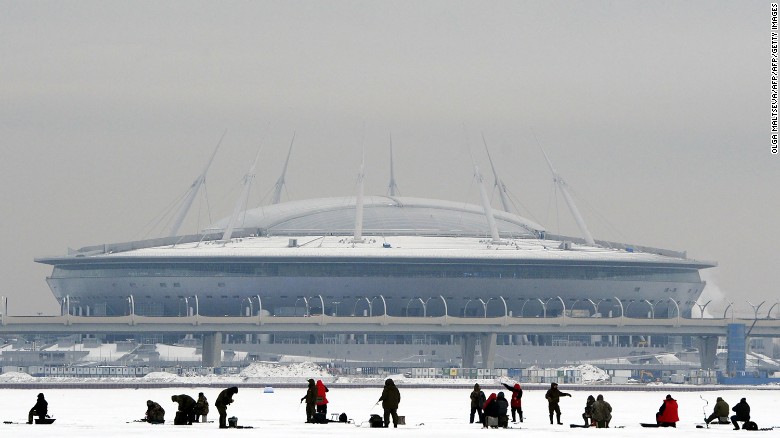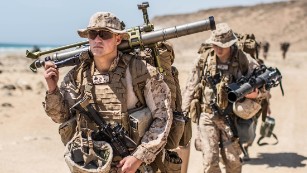Assad: US military forces in Syria are 'invaders'
Syria's President Bashar al-Assad scoffed and questioned US actions in Syria, calling American troops deploying to the country "invaders" because he hadn't given permission for them to enter the country and saying there's been no "concrete action" from the Trump administration toward ISIS.
"Any foreign troops coming to Syria without our invitation or consultation or permission, they are invaders, whether they are American, Turkish, or any other one," Assad said.
"And we don't think this is going to help. What are they going to do? To fight ISIS? The Americans lost nearly every war. They lost in Iraq, they had to withdraw at the end. Even in Somalia, let alone Vietnam in the past and Afghanistan, your neighboring country. They didn't succeed anywhere they sent troops, they only create a mess; they are very good in creating problems and destroying, but they are very bad in finding solutions."
The Syrian leader made the comments in an interview with Chinese media outlet Phoenix TV. It was published on Syria's state-news agency SANA on Saturday.
US Marines join local forces fighting in Raqqa
US Marines have arrived in northern Syria with artillery to support US-backed local forces fighting there, US officials said. The US-backed fighters are preparing to move in the coming weeks to assault the city of Raqqa, ISIS' self-declared capital, according to the officials.
The Pentagon and the Marine Corps have declined to confirm the deployment because of security concerns in the region. They have also declined to specify the exact location of the forces or how many are there.
The US has also deployed approximately 100 Army Rangers in and around Manbij, Syria.
US officials have taken the unusual step of publicly talking about the Ranger deployment and where they are located to protect against them inadvertently coming under fire from forces fighting in the region or Turkish, Russian or Syrian forces.
The US troops in Manbij are trying to deter hostilities due to their visible presence, rather than the typical mission of training, advising and assisting local forces.
Room for cooperation?
In the interview, Assad was asked whether there can be room for cooperation between the United States and Syria.
In theory, Assad said, there could be cooperation between Syria and a Trump-led United States, but that there was no formal ties or outreach so far.
He said the Trump administration's rhetoric during and after the presidential campaign focused on defeating ISIS and he called that "a promising approach to what's happening in Syria and in Iraq, because we live in the same area and we face the same enemy."
But he also said, "we haven't seen anything concrete yet regarding this rhetoric, because we've been seeing now certain is a local kind of raids."
Assad said the approach toward terrorism needs to be "comprehensive" and not "local."
"It cannot be from the air, it should be in cooperation with the troops on the ground, that's why the Russians succeeded, since they supported the Syrian Army in pushing ISIS to shrink, not to expand as it used to be before that. So, we have hopes that this taking into consideration that talking about ISIS doesn't mean talking about the whole terrorism; ISIS is one of the products, al-Nusra is another product, you have so many groups in Syria, they are not ISIS, but they are al Qaeda, they have the same background of the Wahabi extremist ideology," he said.
Regarding advances made by Assad's regime forces, he says they are closing in on the Islamic State stronghold of Raqqa.
"We are very close to Raqqa now. Yesterday, our troops reached the Euphrates River, which is very close to Raqqa city, and Raqqa is the stronghold of ISIS today, so it's going to be a priority for us," said Assad said.
He also said his military's recent recapture of the ancient city of Palmyra blocked ISIS's supply route between Iraq and Syria, and touted that whether he attacked Raqqa or just blocked the supply routes, "it has the same result".
Damascus bombings
Twin blasts in Damascus on Saturday killed at least 40 Iraqi pilgrims and wounding 120 more, according to Iraq's Foreign Ministry.
The twin blasts were caused by IEDs that targeted buses carrying Iraqi pilgrims visiting the Bab al-Saghir Cemetery in Damascus, according to Iraq's Foreign Ministry Spokesman Ahmed Jamal in a statement.
News Courtesy: www.cnn.com












